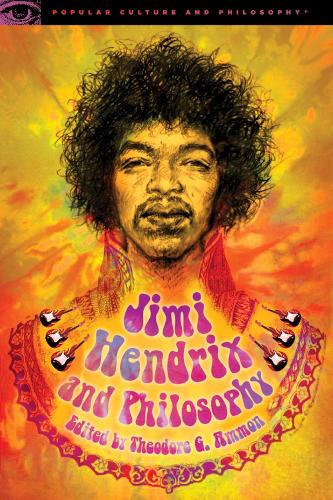
Jimi Hendrix and Philosophy: Experience Required
(Paperback)
Publishing Details
Jimi Hendrix and Philosophy: Experience Required
By (Author) Theodore G. Ammon
Open Court Publishing Co ,U.S.
Open Court Publishing Co ,U.S.
1st March 2018
United States
Classifications
General
Non Fiction
Western philosophy from c 1800
Composers and songwriters
Guitar
782.42166092
Physical Properties
Paperback
256
Width 152mm, Height 228mm
Description
In his brief career Jimi Hendrix transformed rock music, established himself as the greatest guitarist of all time, and left a rich legacy of original songs and dazzling recordings. In Jimi Hendrix and Philosophy, philosophers come to terms with the experience and the phenomenon of Hendrix, uncovering some surprising implications of Hendrix's life and work. Much of this book is concerned with the restless polarities and dualities that reveal themselves through Hendrix.
His compositions display a preoccupation with the tragic nature of life, moving between the polarities of Schopenhauer's The World as Will and Idea and and Platonic philosophy. Jimi's "guitar-being" has surprising implications for the philosophical relation between mind and body. There is in Hendrix a duality between innovation and traditioninnovation in psychedelic sonic adventures and tradition in the form of the blues. Hendrix exemplifies the interaction of technology and art, as seen in his use of feedback, varieties of noise, and backwards reel-to-reel playing. How much of the Hendrix phenomenon can be explained by the technological situation and how much by his own unique genius Everyone knows about Hendrix's use of feedback in the narrow sense, but feedback can also be viewed as a general phenomenon that arises in complex dynamical systems and emerges at the border of chaos and order.
Author Bio
Theodore G. Ammon teaches philosophy, specifically logic and aesthetics, at Millsaps College in Jackson, Mississippi. He has published numerous scholarly articles in philosophy of logic, history of philosophy, and the theory of aesthetics. He is the editor of David Bowie and Philosophy: Rebel Rebel (2016).
